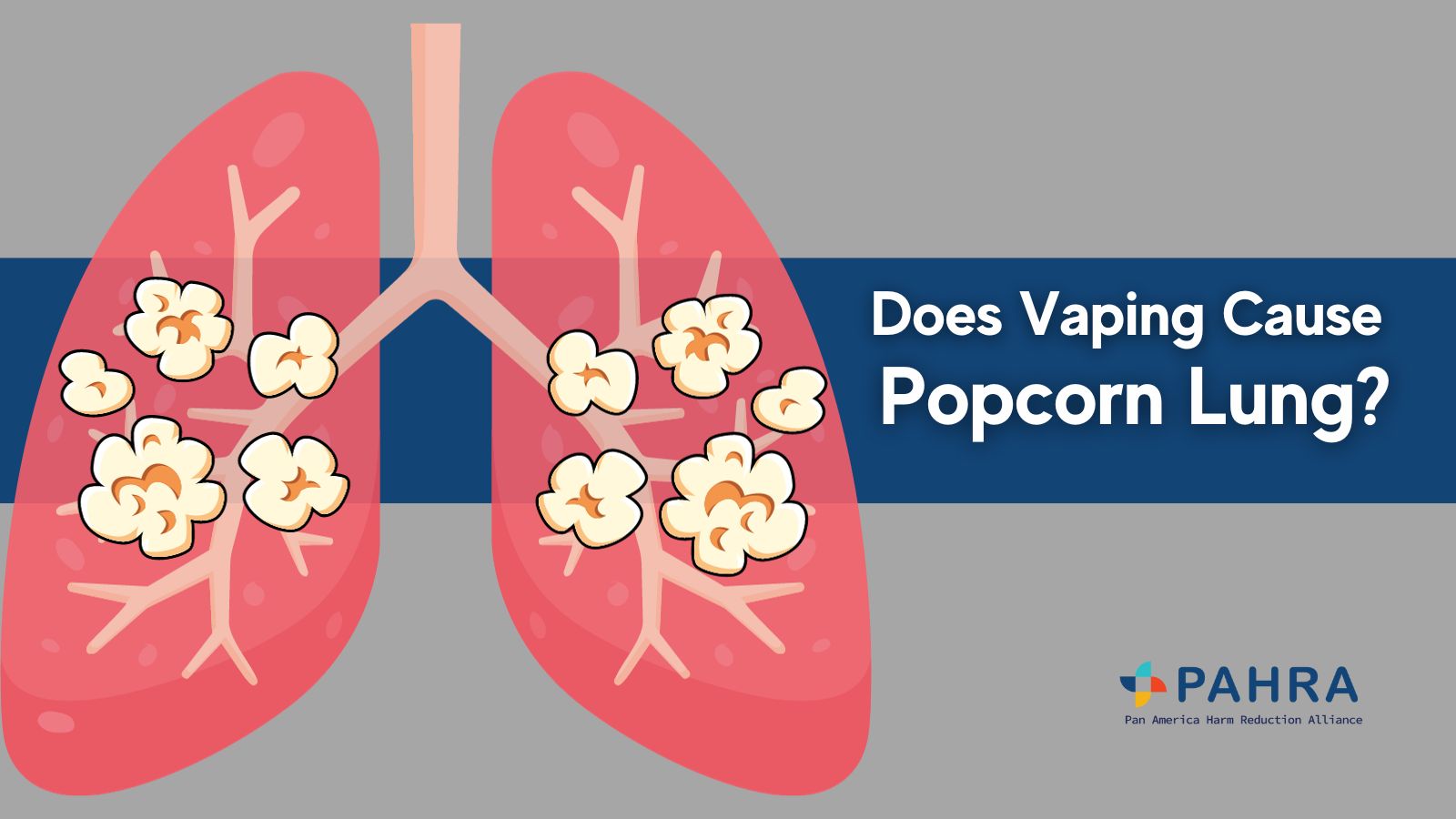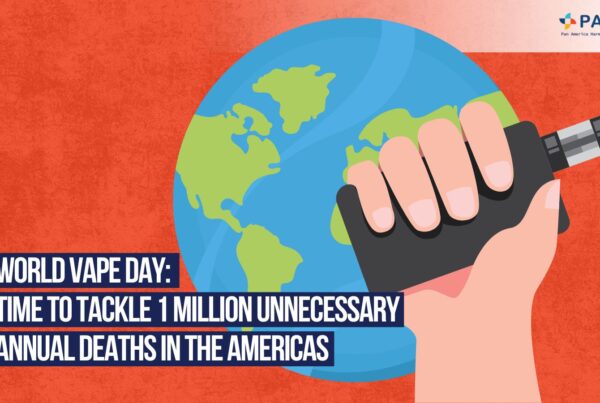
An outbreak of e-cigarette product use-associated lung injury (EVALI) started in 2019 among users of illegal, unregulated cannabis vaping products, almost exclusively in the United States. It was later determined by the U.S. Centers for Disease Control (CDC), that Vitamin E acetate was strongly linked to the EVALI outbreak.
Unfounded claims that nicotine vaping caused EVALI have been used to justify restrictive policies to reduce the uptake of vaping and this has been harmful to public health. One of the most commonly held concerns is that e-cigarettes might cause ‘popcorn lung’.
This came about because some flavorings used in e-liquids to provide a buttery flavor contain the chemical diacetyl, which at occupational exposure, has been associated with the serious lung disease, bronchiolitis obliterans.
Diacetyl, a flavoring agent that gives foods and other products a buttery flavor, was identified as the potential cause for ‘popcorn lungs’. In recent years, there have been concerns about diacetyl in e-cigarettes and vaping products. Although trace amounts have been found in e-liquid in the past, it has been in levels far lower than in combustible cigarette smoke.
Early studies found that some e-cigarette liquids contained diacetyl, which raised concerns about its safety. However, it’s crucial to note that reputable e-cigarette manufacturers have taken steps to remove diacetyl from their products. In the UK, diacetyl was banned in e-cigarette liquids under the EU Tobacco Products Directive (TPD) in 2016. Several Governments also took action to prohibit diacetyl in vapor products, they include Australia and the European Union.
Diacetyl can be found in many brands of combustible cigarettes and people who smoke are exposed to as much as 750 times more diacetyl than people who vape. Despite this seemingly alarming exposure, there have been zero cases of popcorn lung linked to persons using combustible cigarettes and it is not considered a smoking-related disease by public health authorities.
In 2017, researchers published a three-and-a-half-year observational study of e-cigarette users who had never smoked. The researchers found no symptoms consistent with early signs of bronchiolitis obliterans. And, Cancer Research UK has stated that the use of electronic cigarettes does not cause popcorn lung. Getting popcorn lung from vaping is a myth that was debunked years ago.
Nicotine has been widely vaped since 2007, and there are currently 82 million vapers worldwide. There has never been a cluster of lung illnesses like this previously linked to vaping nicotine, nor would one be expected. Vaping nicotine is not without risk, but it has not been linked to any serious respiratory harm in humans according to a recent review. Switching from smoking to vaping leads to a substantial improvement in lung health.
Tags
Popular Posts
Quick Links
Related Posts
 Paradigm Shift Needed In Pan America’s Approach to End Smoking
Paradigm Shift Needed In Pan America’s Approach to End Smoking
Paradigm Shift Needed In Pan America’s Approach to End Smoking
 Tobacco Harm Reduction Seminar in Brazil
Tobacco Harm Reduction Seminar in Brazil
Tobacco Harm Reduction Seminar in Brazil
 Systematic Review of Vaping Flavours | Dr. Konstantinos Farsalinos
Systematic Review of Vaping Flavours | Dr. Konstantinos Farsalinos





